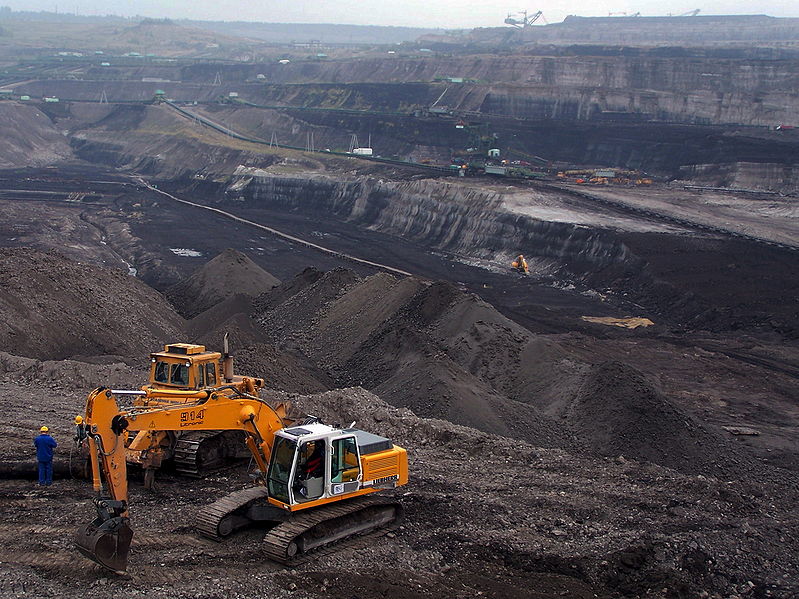The Court of Justice of the European Union (CJEU) has ordered Poland to immediately cease mining operations at the Turów lignite mine near its border with the Czech Republic.
The prohibition is an interim measure sought by the Czech government, which recently filed a lawsuit accusing the Polish government of extending the mine’s permit without properly examining the environmental consequences.
A decision issued today by the top European court orders Poland to immediately cease lignite mining while the court mulls a final ruling on the case.
#ECJ ⚖️ #Polska zostaje zobowiązana do natychmiastowego zaprzestania wydobycia węgla brunatnego w kopalni Turów (C-121/21 R) pic.twitter.com/s1inU0Rkla
— Ireneusz Kolowca (@IreneuszKolowca) May 21, 2021
The open-cast mine in question, which is also near to the border with Germany, has long been considered by authorities from neighbouring countries to be a threat to local groundwater supplies.
State-owned Polish Energy Group (PGE), the country’s largest utility firm, was granted a licence to operate a mine at the site in 1994. That licence has been repeatedly extended for six-year terms, with the latest renewal granted by the Polish climate ministry on 20 March 2020.
But the Czech Republic accused Poland of breaching EU laws in a number of respects in granting the permission and referred the case to the European Commission in September last year. Among other accusations, it said that Poland had failed to carry out an environmental impact assessment.
In December, the European Commission agreed that Poland had indeed breached EU directives. The Czech government then filed a case against Poland at the CJEU in February. It is the first time one EU member state has taken another to court over a breach of environmental laws.
In today’s judgement, the vice-president of the Court, Rosario Silva de Lapuerta, agreed that mining activity should be suspended in Turów ahead of a final ruling.
The CJEU said in a statement that “it cannot be ruled out” that Polish legislation “infringes the requirements” of the relevant directive on the assessment of the effects of certain public and private projects on the environment.
Moreover, the court said it was “sufficiently likely” that continued mining would have “negative effects on the level of groundwater in Czech territory”, which “could threaten the drinking water supply”. The court also noted that a “remedial” anti-filtration screen will only be completed by Poland in 2023.
Janusz Steinhoff, a former Polish economy minister, told Business Insider Polska that he was “surprised” by the decision.
“I believe that it is ill-considered and irrational. Suspending coal mining forces the entity to cease electricity production,” he said, which he believes will be a “social and economic problem for the company” as well as a “technical problem related to the power balance in Poland”.
Warsaw has argued that the temporary suspension of activity would “lead to the irreversible shutdown” of the Turów power plant “due to its technological configuration”. The court has, however, responded today that the assertion has been unsubstantiated.
“The impossibility of carrying out important projects and investments in the energy field cannot, in any event, take precedence over considerations relating to the environment and human health,” it said.
Poland still relies on coal to produce around 70% of its electricity, which is by far the highest proportion in the EU. The government has set a target of reducing this to as little as 11% by 2040, but argues that it needs European financial support to ensure a “just transition”.
Former prime minister Marek Belka wrote that the CJEU’s decision was a “harsh and costly lesson” for Poland’s ruling party about the meaning of “community and shared responsibility,” which he said the current government found “extremely difficult to understand”.
Wspólnota i współodpowiedzialność – pojęcia wyjątkowo trudne do zrozumienia dla pisowskiej grupy trzymającej władzę. Dzisiejsza decyzja TSUE w sprawie Turowa jest srogą i bardzo kosztowną lekcją znaczenia tych określeń.
— Marek Belka (@profMarekBelka) May 21, 2021
Similar interim measures have been deployed by the CJEU in the past, notably in the case of Białowieża Forest in 2017, when the court ordered Poland to immediately stop logging there.
The full proceedings at the CJEU in the Turów case may take several years. If the court ultimately sides with Prague, Warsaw may have to pay millions of euros in fines for breaching EU law. The dispute could also force the Polish government to speed up its planned transition away from coal.
Main image credit: CAN Europe/Flickr (under public domain)

Maria Wilczek is deputy editor of Notes from Poland. She is a regular writer for The Times, The Economist and Al Jazeera English, and has also featured in Foreign Policy, Politico Europe, The Spectator and Gazeta Wyborcza.




















